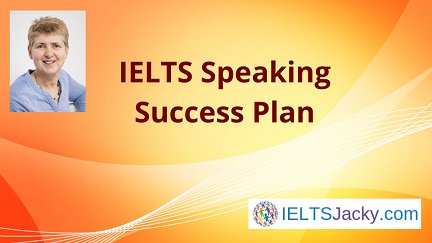IELTS
Listening Online – Sample 14
Listen to the recording and answer the questions below.
Then, scroll to the bottom of the page for the answers and a transcript of the recording.

Click this link to hear the recording: Job Interview Recording
Acronyms you need to know.
HR – Human resources
L&D – Learning and development
Questions:
Complete
the sentences below.
Write NO MORE THAN TWO WORDS AND/OR A NUMBER for each answer.
1. How long ago did Maria leave her first job?
2. In her first job, what other area of work was Maria involved in apart from L&D?
3. What level of qualification did Maria achieve a couple of years back?
4. How many people make up the existing HR team in the company?
5. What has the company not yet devised for its future L&D needs?
Answers & transcript
Scroll down for the answers and recording transcript.


Answers:
1.
3 years
2. payroll
3. a diploma
4. 6
5. a strategy
Transcript:
Job interview
Interviewer: Hello,
Maria. Thanks for coming in for the interview.
Maria: It's my pleasure. Thanks for inviting me
Interviewer: Well, as you know, the company has been expanding and we have an opening in our HR department. We're creating a new role for someone to lead our training and development within the company.
Maria: Yes, I very much think that my skills and experience are a good fit for what you're looking for.
Interviewer: That sounds great. So, your CV looks strong, though it would be good if you could give us an overview, in your own words, of what you've been doing over the past four years or so.
Maria: Well, in my first job, four years ago, I was working for a small HR services provider which offered HR services, including L&D, to corporate clients.
Interviewer: OK, so it was only B2B?
Maria: Yes, we only offered services to other companies, not B2C
Interviewer: Right, and it says here you then left that company about three years ago.
Maria: Yes, that's right. I was looking for a little more stability and also to be part of a larger organisation. So I joined a company with around one hundred staff and a small HR team. As there are only a few of us, we each deal with a range of HR topics. In addition to payroll, one of the areas I was responsible for was learning and development.
Interviewer: I see. So why do you want to change jobs now?
Maria: Well, I very much like the L&D side of my role and I've always had particularly good feedback for my work in this area. I believe I excel in that field. So, I'm looking to specialise, and as your company has around 2,000 people, right …?
Interviewer: Yes, that's right.
Maria: Well, an organisation of this size would give me the scope to specialise in L&D. I'm also a big follower of your brand and feel fully aligned with your image and values.
Interviewer: Well, that all sounds good. And I can see you have an L&D qualification.
Maria: Yes, I got a diploma two years ago. I am also currently working on a further diploma in psychology, with a specific focus on learning and performance management.
Interviewer: Very good. Well, it looks like you have the qualifications and experience we're looking for. What do you think will be the main challenges of coming to a much larger company?
Maria: I can see that it might be perceived as a weakness to not have experience in an organisation of this size, though I see that it could also be a benefit. I won't be bringing too many preconceived and possibly inflexible ideas with me to the role.
Interviewer: Yes, that would be a good thing.
Maria: Also, I'm used to taking a very personal approach to employee development. I realise that such an approach with 2,000 staff members will have to happen in a different way, but I bring many ideas with me that can be replicated on a larger scale.
Interviewer: I see what you mean. Right, so, do you have any questions for me?
Maria: Um, I think we've covered many of the areas I had wanted to address. I have two quick questions though.
Interviewer: Go on.
Maria: Who would I mostly work with on a daily basis?
Interviewer: Well, there's the HR manager who you would report to. And then the HR team, which currently has six people in it. There's usually an intern or two who you can get some support from also.
Maria: OK. Thanks. That's all really clear. And my other question is how performance in this role will be measured. What does success look like?
Interviewer: That's a good question. As you know, we have a performance management system in place and from that, we have identified some learning and development needs within the organisation. But we haven't devised a strategy. Your role would be to devise and then successfully implement this strategy.
Maria: Thank you. That sounds interesting
Interviewer: Great. So, thanks again for coming in today. We'll be discussing all candidates next week and then I'll get back to you by the end of next week to let you know the outcome.
Maria: Thank you for your time. I'd welcome the opportunity to continue discussing this role with you.
Source: British Council
To learn How to Answer Short Answer Questions, click this link.
Like this page?
More IELTS Listening Practice Samples
Here are a few examples of the many practice activities I've created:
Sample 1 – The science of cotton
Sample 2 – Why perfect grades don’t matter
Sample 3 – The loathsome, lethal mosquito
Sample 4 – Will there ever be a mile-high skyscraper?
Sample 5 – The history of African-American social dance
Sample 6 – Families - The generation gap
Sample 7 – Greeting the world in peace
Sample 8 – How cigarettes affect the body
Sample 9 – How do oceans currents work?
Sample 10 – How to make red lentil fritters
To see the full list of practice samples, click this link:





